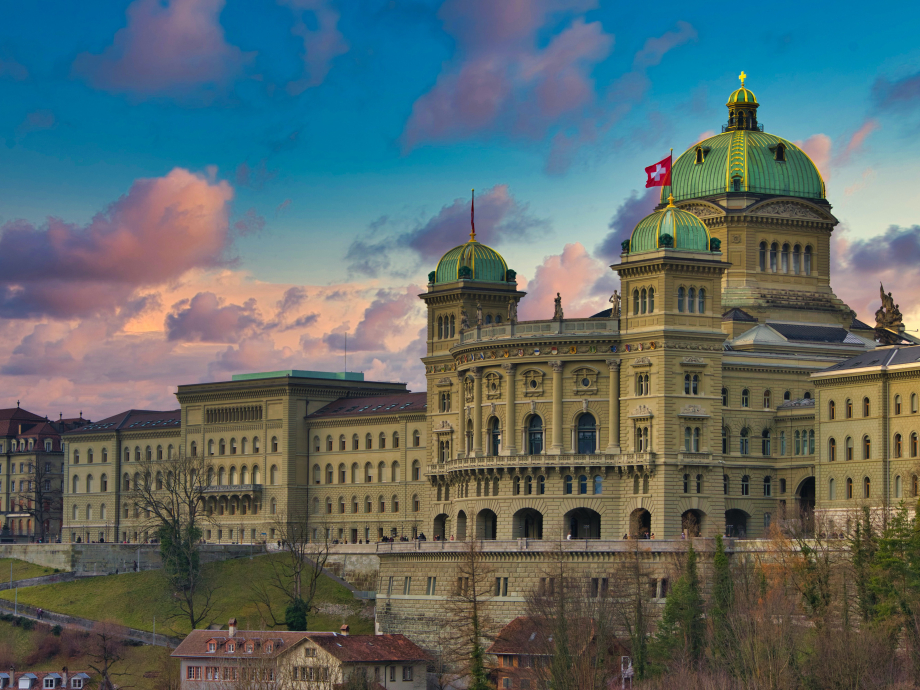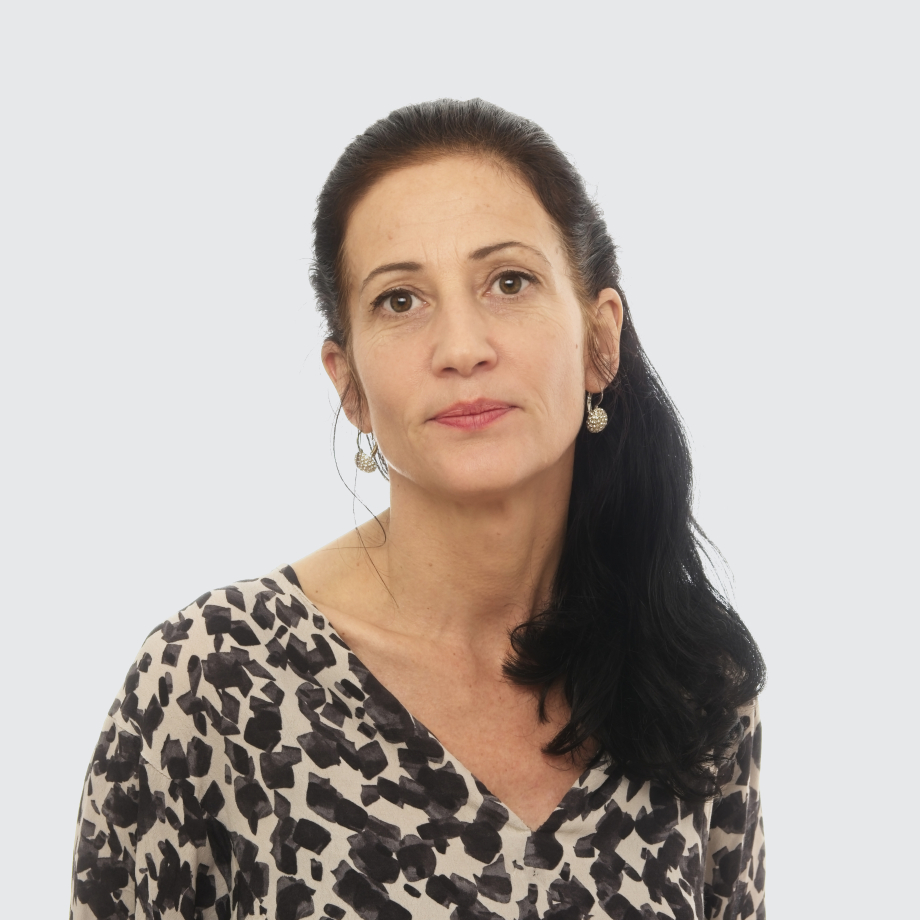Our partners abroad (4): TA-SWISS
The Rathenau Instituut has been unique in the Netherlands for 35 years. Worldwide there are at least 22 other institutes that advise parliament and citizens on the possible societal consequences of technological developments. In the European Parliamentary Technology Assessment network (EPTA) they cooperate and try to learn from each other. Now that the Netherlands is EPTA chair for a year, we want to get to know some of these institutes better through a series of articles. In episode four: Elisabeth Ehrensperger of TA-SWISS located in Bern.

In short:
- Citizens are an important audience for TA-SWISS, as in Switzerland they can directly participate in the decision-making process through referendums.
- The Institute publishes in German, French, English and Italian.
- In Switzerland, anti-COVID measures also caused a divide between groups.
Elisabeth Ehrensperger has been director of TA-SWISS, the Swiss foundation for technology assessment, since 2017. She leads a group of eight staff members who, among other things, coordinate the research carried out externally by universities and research institutions.
What is the most important topic in Switzerland right now?
‘At the end of this month, we have a referendum on the COVID law, which lays the basis for the use of a COVID pass that was introduced here in September. Anyone who wants to go to a café, restaurant, library, university or museum must show that they have been vaccinated, cured or recently tested. If Swiss people want to reverse this kind of government decision, they can request a referendum. Such a request must be supported by 50,000 people within a hundred days. For this subject, more than 180,000 support votes were already received within three weeks. Many people think that the government is restricting them too much, that this measure is unconstitutional. Others are afraid of the virus. A division in the population is developing and trust in the government is declining. 70% of Swiss people appear to be very worried about this.’
And if there had been no COVID?
‘In Switzerland, there is a ban on genetic engineering. It is laid down in the constitution that the genetic modification of people is prohibited. In addition, there is a temporary ban on the genetic modification of plants and animals. The ban has to be renewed every four years. So this also causes a discussion, because some groups want to get rid of this moratorium. We have published a report on the Crispr/Cas9 technique, which allows genetic material to be modified. In the report we do not say what Parliament should do, but we provide information so that others can make a political decision. We are politically impartial.’
How do you keep in contact with parliament?
‘All parliamentarians receive our newsletter and a short version of our reports. Because they often have little time to read reports, recently we started producing one pagers, on topics such as blockchain, artificial intelligence, new applications of DNA analysis. But the best way to reach parliamentarians remains the traditional media. With our press releases and presentations, we manage to get their attention for our reports reasonably well. We also try other forms. For example, we have just completed a project on the influence of digitisation on democracy. One of the components was an exhibition. We had invited parliamentarians to the opening, but no more than a handful showed up. It did get attention from media that normally do not pay attention to us.’
Your website is in German, French, English and Italian. Isn't that inconvenient?
‘German, French and Italian are among the official languages of Switzerland, as is Rhaeto-Romanic, which is still spoken by a small group of people in the south. As an institution, we are obliged to publish everything in the most widely spoken languages: German and French. It is true that this costs a lot of time and money, but it is important. Because in Switzerland we decide a lot through referenda, it is not only the politicians who make the direct decisions, but also the citizens. They are also an important target group for us. Our staff is also bilingual, as are the supervisory committees for the studies. In these committees, everyone speaks their mother tongue. This is sometimes difficult, but it does have an added value. In terms of content, it often provides a broader perspective. French speakers often use different literature, especially in the biomedical field.’
What can the Netherlands learn from Switzerland?
‘We have only a small office with eight people. We do not conduct our own studies, but issue tenders to which universities or research institutes respond. Often, these are consortiums that then carry out the research. The advantage of this is that such a tender already ensures that scientists become aware of a certain theme and of the questions we describe in it. But it also has advantages if you conduct your own research, like the Rathenau Instituut. Raising awareness among the population costs a lot of time and money, and at meetings you often get the group that was already interested anyway. So now we want to use participatory events mainly to get input for TA-projects.
Our staff is bilingual. This is sometimes difficult, but in terms of content, it often provides a broader perspective
How do you keep in contact with parliament?
‘All parliamentarians receive our newsletter and a short version of our reports. Because they often have little time to read reports, recently we started producing one pagers, on topics such as blockchain, artificial intelligence, new applications of DNA analysis. But the best way to reach parliamentarians remains the traditional media. With our press releases and presentations, we manage to get their attention for our reports reasonably well. We also try other forms. For example, we have just completed a project on the influence of digitisation on democracy. One of the components was an exhibition. We had invited parliamentarians to the opening, but no more than a handful showed up. It did get attention from media that normally do not pay attention to us.’
Your website is in German, French, English and Italian. Isn't that inconvenient?
‘German, French and Italian are among the official languages of Switzerland, as is Rhaeto-Romanic, which is still spoken by a small group of people in the south. As an institution, we are obliged to publish everything in the most widely spoken languages: German and French. It is true that this costs a lot of time and money, but it is important. Because in Switzerland we decide a lot through referenda, it is not only the politicians who make the direct decisions, but also the citizens. They are also an important target group for us. Our staff is also bilingual, as are the supervisory committees for the studies. In these committees, everyone speaks their mother tongue. This is sometimes difficult, but it does have an added value. In terms of content, it often provides a broader perspective. French speakers often use different literature, especially in the biomedical field.’
What can the Netherlands learn from Switzerland?
‘We have only a small office with eight people. We do not conduct our own studies, but issue tenders to which universities or research institutes respond. Often, these are consortiums that then carry out the research. The advantage of this is that such a tender already ensures that scientists become aware of a certain theme and of the questions we describe in it. But it also has advantages if you conduct your own research, like the Rathenau Instituut. Raising awareness among the population costs a lot of time and money, and at meetings you often get the group that was already interested anyway. So now we want to use participatory events mainly to get input for TA-projects.
